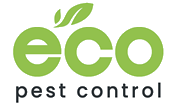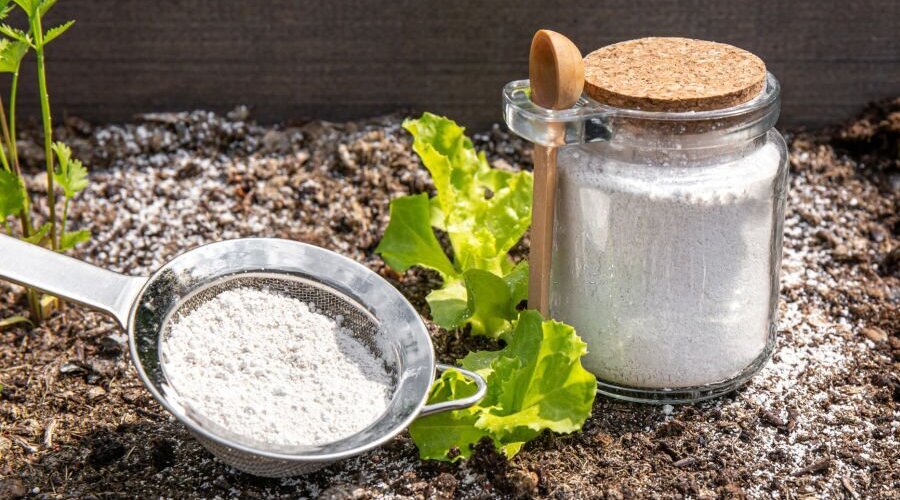Natural Pest Control Made Easy
Comprehensive Handbook on Natural Pest Control Methods
Are you looking for a humane way of controlling pests in your home without having to resort to chemical pesticide agents?
If so, then this guide will be of great use to you.
Eco Pest Control Perth makes use of natural pest control solutions that are non-toxic and friendly to both pets and humans.
In this guide, learn about the various natural repellants, biological controls, and physical preventative methods you can employ in controlling pests.
This allows you ease of mind when invaders pop up in your home.
Natural Repellants
1. Coffee Grounds
Coffee grounds can be used as a natural pest control, especially against creepy crawly. When spread around the perimeter of your home, it may deter ants, and fruit fly from entering due to its strong smell. The best kind of coffee grounds to use would be fresh, finely ground ones as these will release more scent particles into the air. If you have an ant problem and don’t have any spare freshly ground beans at home, just head down to your nearest cafe and ask for some instead. Make sure to reapply this method using a spray bottle every few days so that its potency isn’t worn off too quickly.
2. Mint
Mint is an effective and natural way of deterring ants, cockroaches, spiders, flies, and even mice. The strong scent mint and diatomaceous earth retains is enough to make most pests like mosquitoes, ants and fruit flies turn away instantly. To best utilise this repellant in your home, you can grow fresh mint indoors or purchase pre-made essential oil blends at a store. If you’re feeling extra audacious, try making your own peppermint spray by blending some water with some drops of peppermint oil and spraying it around the house to help keep bugs away. For best results, be sure to perform this method every few days for optimal freshness.
3. Cloves
The strong smell of cloves has proven to be an effective pest control as an antidote against certain invaders like rodent control and mosquito repellent. It is most effective in repelling ants, bed bugs, spiders, fly, and even mosquito larva. The best way to employ this natural repellant would be to scatter ground cloves around your home’s perimeter or at points of entry you’ve spotted bugs coming in from. Alternatively, you can also try mixing the essential oil with clove first before spraying it over the parts of your house where the nuisances roam. For large-scale problems like termites though, we recommend still seeking professional help in order to ensure long-term prevention and protection.
4. Hot Pepper
Do you have a large population of pests living in your garden that you can’t seem to get rid of? You may want to consider sprinkling a mixture of pepper and boric acid around the perimeter of your home. The strong scent and taste of chili peppers are believed to act as an effective repellant against most garden bugs, such as aphids, caterpillars, and squash bugs. Additionally, be sure not to sprinkle too much. So that only a light dusting remains. Otherwise, it just might kill off your healthy plants too.
5. Apple Cider Vinegar
This liquid wonder can be used to not only make a tasty salad dressing. But also as a natural pest control repellant. A couple of cups of petroleum jelly mixed with this acid is said to help ward off ants as a natural insecticide particularly by blocking their path and interrupting their communication signals. To try this out, simply place some cotton balls around your countertops or in areas where you’ve spotted activity the most. Just make sure to replace these every few days.
Biological Controls
1. Beneficial Insects
Introducing these insects may be an ideal way to naturally and effectively control the menace population in your garden or even in your home. These bugs help by preying on the bad ones and making sure they don’t reproduce too quickly. Ladybugs, lacewing larvae, predatory mites, and hoverflies are some examples of them you could introduce into your environment. To ensure that these little critters will stay around longer, make sure to provide them with a sufficient source of food as well as plenty of hiding spots.
2. Fungi
Believe it or not, fungi can also act as a biological treatment against certain trouble. In particular, it is usually groups of fungal species that target specific ones, such as the Beauveria bassiana which helps to ward off whiteflies and mosquitoes. If this doesn’t help enough, you can always resort to introducing some insects discussed in a previous section.
3. Nematodes
Nematodes are microscopic worms that seek out and destroy many garden bugs like fleas and cutworms bookworm larvae among others. When released into the soil, these helpful creatures go on a carnivorous hunt for their prey. Different species specialise and instructions in preying upon the different attacker. So make sure to inspect your local area closely before purchasing some nematodes. They need to be natively occurring microorganisms that latch and steal nutrients from the targeted destroyer exclusively. For best results though, apply this method when conditions are warm and moist with minimal wind exposure during sunset hours for maximum effectiveness.
Physical Control
1. Keep Your Home Clean
It goes without saying that a clean home is less likely to harbor pesky guests. To keep your environment as clean as possible, wipe down hard surfaces with and soap on a daily basis or else, dust, and dirt will accumulate which bugs tend to thrive off of. When other pest-resistant strategies don’t quite do the job, this method is always seen to be helpful in keeping bugs away and thus able to prevent any further spread of infestations. Plus, who doesn’t want their homes spic ‘n’ span anyway?
2. Seal Up Any Gaps
Take the time to inspect your home for any holes or gaps that unwanted guest may slip through. This includes cracks in walls, questionable window frames, and even old door frames. This is because these places are easy entry points for pests trying to invade your safe haven. For preventative methods such as this one, we recommend utilising caulk or rocks to fill up deeper gaps and wallpapers which are pasteable materials that can be used to cover smaller crevices. Or if you’ve got the knack for it, consider re-installing new windows nets altogether.
3. Fix Torn Window Nets
It’s always a good idea to inspect your windows for any broken or torn netting. Insects such as flies, mozzies, and even some spiders are able to pass through the tightest of cracks. So remember to take the time to mend what needs fixin’. If you’ve got mosquito nets shielding you from unwanted bug visitors too, be sure to check those often for any large holes that may have appeared. To fix these mosi-nets up again, we suggest using a sturdy needle and thread which should get the job done adequately enough.
4. Clean Up Standing Water
If standing water is lying around in your premises, then chances are it could also be contributing towards increasing pest activity lately. They are generally drawn to moist areas and as such some may even breed in areas where they can find standing water easily like blockades, and sink drains.
5. Invest in a Dehumidifier
If pests are persisting, then consider investing in a dehumidifier. It works to remove large amounts of excess moisture from the air. Thus, decrease humidity levels in your home or surrounding garden areas. As an added benefit too, this machine also helps reduce possible mold growth within your living or outdoor spaces which can often be a source of certain allergies and asthma attacks too.
6. Store Food Properly
Keep pantry pests away by storing food items properly either in airtight containers or in separate airtight bags depending on what type of item it is. If not done. So already, all sweets like biscuits and cakes should be sealed up tightly after every use so bugs won’t get attracted just from their sweet aroma alone.
7. Dispose of Garbage Frequently
Now it’s time to get your garbage in check too. Make sure to keep up with consistent disposal of any unwanted scraps or excess waste that may accumulate around the house from day to day. Otherwise, this accumulated trash can attract all sorts of insects like blowflies, cockroaches, and ants. It is because it provides them with shelter and an excess source of food too. When doing so, we suggest placing the refuse into multiple thicker bags before tying them off tightly and disposing of them in sealed bins for extra security.
Non-Chemical and Homemade Sprays
For those looking to avoid traditional chemical insecticides, there are many effective natural pesticide and homemade spray options for controlling insect pests. These natural products often rely on ingredients like soap, oils, plants, and spices to deter or kill insects.
1. Soap Spray
It is one easy homemade insecticide. Simply mix 1 tablespoon of liquid soap (use a mild soap, not detergent), 1 tablespoon of vegetable oil, and add some water. The soap helps the spray stick to plants while the oil smothers insects. Spray directly on bug-infested plant foliage.
2. Cayenne Pepper Spray
This spray is another natural insect repellent. Mix 1 cup of water with 1 tablespoon of cayenne and 1 tablespoon of liquid soap. Let it sit for 24 hours before straining. The spicy capsaicin in the pepper irritates insects. Spray onto plants, focusing on the undersides of leaves.
3. Garlic Oil Spray
Garlic oil spray helps repel aphids and other soft-bodied insects. To make it, finely mince 4 bulb of garlic and add them to 1 cup of oil. Let this mixture sit for at least 24 hours before straining. Add 1 teaspoon of mild liquid soap to help the oil spray adhere to plants. Shake well before spraying onto infested plants.
4. White Oil Spray
For beetles, a spray of white oil made from oil and water can help smother and kill them. Mix 1 cup of vegetable oil with 1 tablespoon mild liquid soap. Slowly whisk in 7 cups of liquid. Spray onto plants, especially under leaves and on stems where they may hide.
Some effective natural insecticides on the market rely on ingredients like plant oils, iron phosphate, and diatomaceous earth. Always follow label directions closely when using any natural pest control solutions.
Conclusion
By making use of methods such as natural repellants, biological controls, or physical preventative measures set out in this guide, controlling these pesky critters has never been easier.
Eco Pest Control Perth is here to help make your home a safe place and free from any uninvited guests.
So that you can stay stress-free knowing that the idea of having to battle an infestation alone is no more. Good luck.



